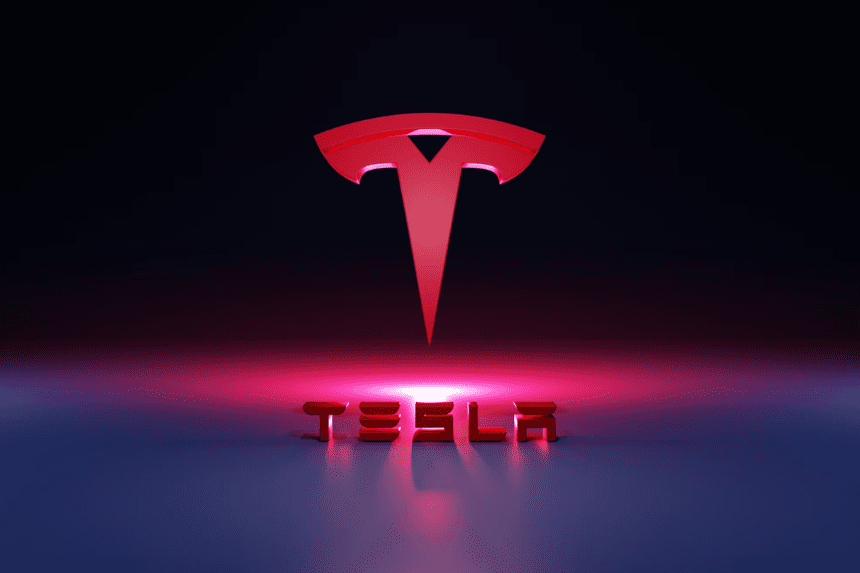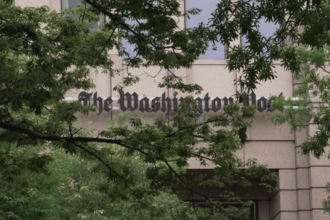Tesla, a leader in the electric vehicle (EV) market, has faced a significant downturn in its financial performance. In the first quarter of 2025, the company reported a 20% drop in automotive revenue, which was compounded by a staggering 70% decrease in profits. Tesla’s total revenue of $19.3 billion for the quarter was a 9% decline from the previous year, falling short of analysts’ expectations. This sharp financial dip has caused concern among investors, and many are questioning whether Tesla can maintain its competitive edge in the ever-evolving automotive industry. In this article, we will explore the key factors behind Tesla revenue decline, the role of Elon Musk’s political involvement, and potential strategies the company could adopt to overcome its current challenges.
What Is Causing Tesla's Revenue Decline?
Several factors are contributing to Tesla’s revenue decline, with one of the most significant being CEO Elon Musk’s political involvement. Musk has become a prominent figure not only in the tech industry but also in the political landscape. His public support for former President Donald Trump and his involvement in the Trump administration have drawn both praise and criticism. Musk’s leadership role in the Department of Government Efficiency (Doge), an initiative aimed at reducing federal spending and trimming the government workforce, has further fueled controversy. While some may view Musk’s political endeavors as an extension of his influence, others see it as a distraction from his responsibilities at Tesla.
The backlash against Musk’s political involvement has affected Tesla’s public image, leading to protests and boycotts in certain markets. Customers and investors who disagree with Musk’s political affiliations have distanced themselves from the company. Musk himself has acknowledged that his political commitments have diverted his focus from Tesla. “My time allocation to Doge will drop significantly starting next month,” he stated. This decision to reduce his involvement in political matters aims to refocus his attention on Tesla’s core operations. It remains to be seen whether this shift will be enough to recover the Tesla revenue decline.
While political distractions have certainly played a role in Tesla’s financial difficulties, the company also faces internal challenges, including intensifying competition in the EV market. As more automakers introduce their own electric vehicles, Tesla’s unique market position is being tested. The company will need to adapt and innovate to retain its leading role in the industry.
How Are Tariffs and Trade Policies Impacting Tesla's Revenue Decline?
Another factor that has contributed to Tesla revenue decline is the impact of tariffs and trade policies. The U.S. government, under former President Donald Trump, imposed tariffs on Chinese imports, which affected many companies reliant on components sourced from China. Although Tesla assembles its vehicles in the U.S., it still depends on Chinese suppliers for key parts, such as batteries and electronics. These tariffs have increased production costs for Tesla, directly affecting its profit margins.
Tesla has been vocal about the negative impact of these trade policies. Musk has repeatedly emphasized that he advocates for lower tariffs to help U.S. manufacturers, including Tesla, stay competitive. However, the uncertainty surrounding trade policies and tariffs continues to pose a significant challenge for the company. As long as these trade tensions persist, Tesla revenue decline could continue, placing additional pressure on the company’s bottom line.
Despite the tariffs, Tesla has made efforts to localize its supply chain in North America and Europe, which helps mitigate some of the negative impacts. However, the reliance on parts from China remains a critical vulnerability, and the company must continue to find ways to reduce its exposure to trade disruptions. Tesla’s ability to manage these external factors will play a crucial role in determining whether the company can recover from its current financial slump.
Can Tesla's Revenue Decline Be Reversed Through Innovation?
In an attempt to reverse the revenue decline, Tesla is placing significant emphasis on innovation. Elon Musk has consistently stressed that the company’s long-term success hinges on its ability to lead in technology and innovation, particularly in the fields of artificial intelligence (AI) and autonomous driving. Musk envisions AI playing a key role in Tesla’s future, with applications that could enhance everything from autonomous driving features to energy management and manufacturing processes.
While AI has enormous potential, it remains uncertain whether these technologies will deliver immediate financial benefits. Investors have expressed some skepticism, as they have seen limited returns from Tesla’s AI initiatives thus far. However, Musk remains confident that AI will eventually lead to new revenue streams for the company, particularly through advancements in self-driving vehicles and energy systems. While these innovations hold promise for Tesla’s future, they are unlikely to have an immediate impact on its current revenue decline.
In the meantime, Tesla will need to focus on improving its existing operations. The company’s success has always been driven by its electric vehicles, and it cannot afford to rely solely on futuristic technologies like AI to resolve its current financial challenges. Instead, Tesla must continue to optimize production, improve vehicle quality, and meet customer expectations while investing in its innovative technology.
What Steps Can Tesla Take to Recover from Revenue Decline?
To recover from the Tesla revenue decline, the company needs to adopt a more comprehensive and strategic approach. First, it must refocus on its core business operations, ensuring that the company’s vehicles remain competitive and that production processes are as efficient as possible. As competition in the electric vehicle market intensifies, Tesla must find ways to differentiate itself, either through better technology or more competitive pricing.
In addition to improving operational efficiency, Tesla will need to further localize its supply chain to mitigate the effects of tariffs. By reducing its reliance on Chinese components, the company can protect itself from trade disruptions and better manage its production costs. Building a more resilient supply chain will be essential in ensuring that Tesla remains competitive and can weather any future trade challenges.
Moreover, Musk’s reduced involvement in political matters is a positive step for Tesla. With his attention focused on the company, Musk will be in a better position to lead the company through this challenging period. By making more time for Tesla’s operations, Musk can guide the company toward recovery, using his vision and leadership to steer Tesla through the current economic turbulence.
Lastly, rebuilding public trust will be an important factor in overcoming revenue decline. While Musk’s political involvement has polarized some customers, Tesla can rebuild its reputation by focusing on customer satisfaction, product quality, and sustainability. As Tesla works to regain its position in the market, it will need to reassure customers that it is committed to its core mission of delivering high-quality electric vehicles.
Looking Ahead: The Road to Recovery
The road to recovery for Tesla will require a combination of operational adjustments, strategic focus, and ongoing innovation. While Tesla’s revenue decline presents significant challenges, the company has the potential to bounce back if it addresses these issues head-on. With a renewed focus on production efficiency, supply chain resilience, and product innovation, Tesla can regain its competitive edge in the electric vehicle market. Musk’s decision to reduce his political involvement should help the company regain focus, but the ultimate success of Tesla’s recovery will depend on its ability to meet both short-term and long-term challenges.
Tesla’s ability to navigate through this difficult period will determine whether it can continue to lead the electric vehicle industry or if it will falter under external pressures. With the right adjustments and leadership, Tesla could not only recover from this revenue decline but emerge stronger than ever before.








